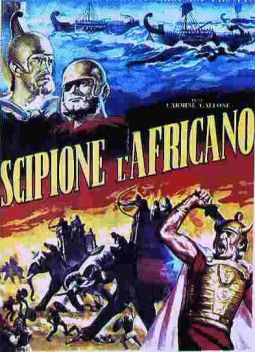
The Venice Film Festival or Venice International Film Festival is an annual film festival held in Venice, Italy. It is the world's oldest film festival and one of the "Big Five" International film festivals worldwide, which include the Big Three European Film Festivals, alongside the Toronto Film Festival in Canada and the Sundance Film Festival in the United States. The Festivals are internationally acclaimed for giving creators the artistic freedom to express themselves through film. In 1951, FIAPF formally accredited the festival.

The 1930s was a decade that began on January 1, 1930, and ended on December 31, 1939. In the United States, the Dust Bowl led to the nickname the "Dirty Thirties".

Roberto Gastone Zeffiro Rossellini was an Italian film director, screenwriter and producer. He was one of the most prominent directors of the Italian neorealist cinema, contributing to the movement with films such as Rome, Open City (1945), Paisan (1946), and Germany, Year Zero (1948). He is also known for his films starring Ingrid Bergman, Stromboli (1950), Europe '51 (1952), Journey to Italy (1954), Fear (1954), and Joan of Arc at the Stake (1954).
The year 1937 in film involved some significant events, including the Walt Disney production of the first American full-length animated film, Snow White and the Seven Dwarfs.

Harold Eugene "Hal" Roach Sr. was an American film and television producer, director, screenwriter, and centenarian, who was the founder of the namesake Hal Roach Studios.

A mountain film is a film genre that focuses on mountaineering and especially the battle of human against nature. In addition to mere adventure, the protagonists who return from the mountain come back changed, usually gaining wisdom and enlightenment.

Cinecittà Studios is a large film studio in Rome, Italy. With an area of 400,000 square metres, it is the largest film studio in Europe, and is considered the hub of Italian cinema. The studios were constructed during the Fascist era as part of a plan to revive the Italian film industry.

Telefoni Bianchi films, also called deco films, were made by the Italian film industry in the 1930s and the 1940s in imitation of American comedies of the time in a sharp contrast to the other important style of the era, calligrafismo, which was highly artistic. The cinema of Telefoni Bianchi was born from the success of the Italian film comedy of the early 1930s; it was a lighter version, cleansed of any intellectualism or veiled social criticism.

Tony Gaudio, A.S.C. was an Italian-American cinematographer and sometimes is cited as the first to have created a montage sequence for a film.

Isa Miranda was an Italian actress with an international film career.
A list of some notable films produced in the Cinema of Italy ordered by year and decade of release For an alphabetical list of articles on Italian films see Category:Italian films.

The cinema of Somalia refers to the film industry in Somalia. The earliest forms of public film display in the country were Italian newsreels of key events during the colonial period. In 1937 the film Sentinels of Bronze was produced in Ogaden Somalia, with nearly all Somali actors. Growing out of the Somali people's rich storytelling tradition, the first few feature-length Somali films and cinematic festivals emerged in the early 1960s, immediately after independence. Following the creation of the Somali Film Agency (SFA) regulatory body in 1975, the local film scene began to expand rapidly. In the 1970s and early 1980s, popular musicals known as riwaayado were the main driving force behind the Somali movie industry. Epic and period films as well as international co-productions followed suit, facilitated by the proliferation of video technology and national television networks. In the 1990s and 2000s, a new wave of more entertainment-oriented movies emerged. Referred to as Somaliwood, this upstart, youth-based cinematic movement has energized the Somali film industry and in the process introduced innovative storylines, marketing strategies and production techniques.

The Guild of Italian American Actors (GIAA) was founded in 1937 as the Italian Actors Union (IAU) to protect the rights of Italian-American actors in Italian-language theater and was reinvented as GIAA, the Guild of Italian American Actors by then-president Paul Borghese in 1998. Borghese served as president from 1998 to 2002 and currently serves as president emeritus. He took a dying union of 67 members to a membership of 500 actors, directors, and writers. The guild has jurisdiction over Italian-language professional theater, and works to preserve and promote awareness of Italian culture and heritage. GIAA also provides a casting resource to directors and producers seeking Italian-American actors.

Scipio Africanus: The Defeat of Hannibal (Italian title: Scipione l'africano is a 1937 Italian historical propaganda film directed by Carmine Gallone about Scipio Africanus from the time of his election as proconsul until his defeat of Hannibal at the Battle of Zama. The film received financial backing from Benito Mussolini's dictatorship and its production was overseen by Vittorio Mussolini.

The history of cinema in Eritrea dates back to the country's colonial rule under the Kingdom of Italy. In connection with the growth of Italian cinema in the 1930s, so too did the rise of cinema occur in Asmara, Eritrea. In 1937, Asmara's Opera was converted into a dual-use theatre and cinema. By the following year, Asmara had a total of nine movie theatres.
Sergio Montanari was an Italian film editor who was born in Rome and died ibidem. He began his career as assistant editor in the late 1950s in films such as Song of Naples and The Sword and the Cross and In more than thirty years of his career he has worked on the participated in over 150 productions.














